What Is Maskne? Causes & Home Remedies To Treat It Effectively
It's been a hot term on the streets ever since masks became a necessary accessory.
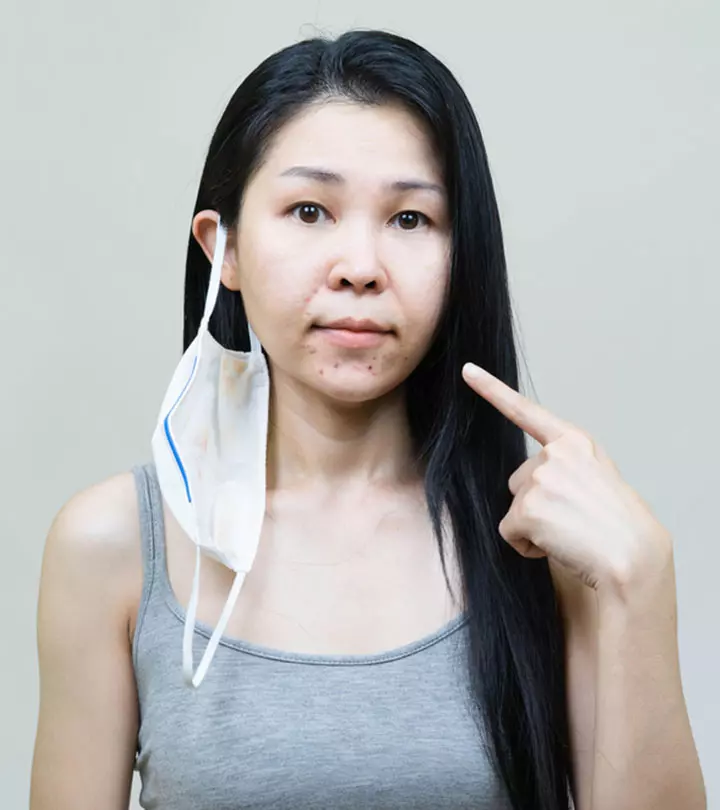
Image: Shutterstock
The term “maskne” can be new to us, but the struggle is eternal and not uncommon. If you are wondering what is maskne, it is a type of acne that you get from wearing facial masks for longer hours. Maskne is also known as acne mechanica. Unlike acne vulgaris, acne mechanica is easy to manage and control. It has always been an issue for people who wear masks and cover their faces for long hours. If you are struggling with maskne, this article will help you understand the condition and explain tips to manage it at home. Keep reading.
In This Article
What Is Maskne?
Maskne of mask acne is also known as acne mechanica a type of acne caused due to constant friction and pressure on the skin. It is not the same as acne vulgaris, which is often caused by hormonal changes and other underlying causes.
Acne mechanica usually occurs on body parts where the skin is exposed to constant friction like the buttocks, face, torso, neck, arms, and legs. It is often seen in those who are engaged in sports like athletics and football (1).
Wearing a mask also exposes the skin around the mouth and the nose to constant friction, leading to acne and inflammation. Anyone can develop maskne. However, those who are prone to breakouts are most likely to develop maskne. Let’s take a look at the symptoms.
In a survey conducted with 360 healthcare workers and non-healthcare workers, all participants used personal protective equipment (PPE). Non-healthcare workers used disposable masks and healthcare workers used surgical masks. While healthcare workers spent 5-8 hours in PPE, non-healthcare workers spent around 1-4 hours. Healthcare workers were observed to have developed more severe skin lesions.
The Symptoms Of Maskne
During the early stages, you may notice symptoms like:
- Rough and bumpy skin (without visible bumps)
- Rashes
- Skin irritation and inflammation
- Patches of dry and scaly skin
However, as the condition progress, you may notice:
- Papules
- Pustules
- Small comedones (blackheads)
The area may itch and become further irritated and inflamed. The biggest difference between maskne and the usual acne (acne vulgaris) is the cause. In the next section, we explore the science behind maskne.
What Causes Maskne? The Science Behind It
Anything that puts pressure on the skin, traps heat, and constantly rubs against it can cause acne mechanica. The most common items that may trigger maskne include:
- Tight-fitting clothes, masks, and undergarments
- Hats and headbands
- Straps of bags, backpacks, bras, and purses
- Athletic accessories like helmets, guards, and pads
- Surgical tapes, casts, and gloves
- Collared shirts and tight T-shirts
When you wear a tight-fitting mask for long hours, it traps sweat, heat, and sebum, clogging the hair follicles. The constant rubbing and friction irritate the pores, leading to small pimple-like eruptions.
Wearing tight-fitting masks (and clothes) may also worsen skin issues like:
- Rosacea: Wearing tight masks may lead to flare-ups and cause redness, pimples, and inflammation.
- Acne: The trapped heat and sweat under tight clothes and masks create a breeding ground for acne-causing bacteria, leading to pimples, whiteheads, and blackheads.
- Contact Dermatitis: This occurs when you are allergic to any material of the masks or clothes you are using. The symptoms include redness, rashes, blisters, and skin irritation.
- Fungal Folliculitis: This type of hair follicle infection is caused by the overgrowth of a type of fungus called Malassezia folliculitis.
Maskne is more likely to affect you if:
- You are an athlete or engage in any sport and are required to wear protective masks and helmets for long.
- You wear tight gloves and several layers of masks (including surgical masks) for long hours.
In addition to the factors mentioned above, several other factors can further worsen the situation. These include:
- Hot And Humid Weather: Rising temperatures and humid conditions can further worsen the situation and cause breakouts.
- Cold And Dry Conditions: When the temperature drops, the skin tends to lose moisture. The tight masks and clothes rubbing against the dry skin can further aggravate the inflammation.
- Makeup And Sunscreen: While a light layer of makeup and sunscreen can protect against friction, thick layers of makeup and sunscreen can clog the skin pores and cause breakouts.
Unlike acne vulgaris, acne mechanica subsides once the reason (tight masks) behind it is taken away. However, in most cases, it is not possible, especially if you are into sports. Here are a few measures you may take to manage maskne.
How To Manage Maskne At Home
- Cleanse Your Face Regularly: Keep the skin clean to avoid any sweat and dirt buildup. For breakouts, use a cleanser with salicylic acid and benzoyl peroxide (2), (3). Salicylic acid facilitates the skin’s natural exfoliation process, dissolving the comedones, while benzoyl peroxide exfoliates the skin surface to minimize inflammation.
- Keep Your Skin Moisturized: Moisturizing the skin helps minimize the friction caused by the masks and tight clothes.
- Resist Picking The Zit Or Pimple: Do not give in to the urge to pick at your pimples. This can worsen the inflammation.
- Go For Spot Treatment: You can use benzoyl peroxide creams and gels as a spot treatment. Apply it to the pimples. However, consult a doctor for the right concentration. You may also use hydrogel patches.
- Skip Applying Makeup: If you have acne and rosacea-prone skin, it is better to avoid makeup. Heavy foundations, concealers, and blushes contain chemicals that may clog the pores and worsen your condition.
- Take Antibiotics: If you have acne-prone skin, the doctor may suggest topical antibiotics like erythromycin and clindamycin to rule out any bacterial development and offer guidance on how to prevent acne (4).
- Topical Retinoids: These are often used to reduce inflammation. You may use it alone or with other medication, as suggested by the doctor (4).
You can also take measures to prevent maskne in the first place. Here are the things you can do.
How To Prevent Maskne
- Wear A Clean Mask: Always wash your masks after every use. An unwashed mask may trap dirt, dust, makeup, and bacteria that can cause skin rashes and inflammation.
 Quick Tip
Quick Tip- Use Fragrance-Free Detergents: Often, synthetic fragrances may cause contact dermatitis. Make sure to wash your masks with fragrance-free and mild detergents. Remove all traces of detergent from the cloth. Detergent residue often causes contact dermatitis.
- Follow A Simple Skin Care Routine: Avoid using too many skin care products. Follow a simple skin care routine involving a gentle cleanser and a mild moisturizer suitable for your skin.
- Do Not Reuse Disposable Masks: Throw away disposable masks after using them once. Do not reuse them ever.
Renee Amberg, a YouTuber, talks about her experience of getting maskne and how she treated it. She states, “I switched back to disposable masks. I had been wearing cotton masks that could be another reason (i). ” She shared that she also tried OTC creams, a gentle skin care routine, and limited her makeup.
 Pro Tip
Pro Tip- Take Off Your Mask Every Four Hours: Take off your mask (if possible) every few hours and allow your skin to breathe. Make sure to cleanse your hands and avoid taking off the mask in a crowded place.
- Moisturize Your Skin Before Wearing A Mask: Constant friction can irritate dry skin. Use a non-comedogenic moisturizer to prevent friction.
- Avoid Tight-Fitting Masks: Wear a mask that is snug and sits comfortably on your face. Go for a two-layered mask made of breathable natural fabric. Avoid using masks made of synthetic fabric.
To avoid acne mechanica on other body parts:
- Avoid Tight Synthetic Clothes: Synthetic fabric traps heat and sweat and increases the risk of acne mechanica. Wear comfortable clothing.
- Create A Barrier: If you cannot avoid tight clothes, wear a cotton T-shirt underneath and apply a light moisturizing lotion to your skin to prevent friction.
- Avoid Things That Rub Against The Skin: Avoid wearing headbands, tight hats, and caps for long hours.
- Take A Shower: If you cannot avoid wearing tight clothes or protective sports gear like pads and helmets, shower immediately after taking them off.
Acne mechanica resolves with OTC medications and modifications in your daily habits. However, if it is accompanied by other skin issues, visit a doctor for proper treatment.
When To Visit A Dermatologist
Reach out to your dermatologist if you have other skin conditions like:
- Rosacea
- Dermatitis
- PCOS
- Acne vulgaris
Maskne is a common issue and can be easily avoided. You just have to be careful about using masks properly and following personal hygiene. Always wear clean masks made of natural and breathable fabric. If you notice excessive sweat accumulation around the mask, you may take it off for a while and wipe your face. Be extra careful if you have an existing skin condition. Follow the tips discussed in the article as preventive measures can go a long way in reducing maskne. Also, do not forget to consult a doctor if the condition does not improve in a few days.
Frequently Asked Questions
Is maskne hormonal acne?
No, maskne is not hormonal acne. However, it may occur in people with hormonal acne, whose skin is prone to acne breakouts.
What mask does not cause maskne?
Masks that are made with breathable fabrics like cotton may not cause maskne.
Can face masks cause wrinkles?
Yes, face masks may cause wrinkles. The continuous friction between the mask and the skin may make the skin rough and lose its elasticity, resulting in wrinkles.
What medical conditions prevent you from wearing a mask?
People with respiratory problems who have trouble breathing and people with severe skin allergies may not be able to wear masks for extended hours. However, under such circumstances, it is better to avoid crowded places.
Can surgical masks cause acne?
Yes, prolonged use of surgical masks can lead to acne, commonly known as maskne, due to increased humidity and friction. The constant cover creates an environment that is conducive to the growth of bacteria and may also cause clogged pores. To minimize this acne type, adopt good skincare practices with non-comedogenic products and consider mask materials that are non-irritating, like cotton. Regularly changing masks, as well as cleansing and moisturizing play crucial roles in the effective management of maskne. However, if issues persist, consult a dermatologist for personalized guidance. Taking these steps for an effective skincare routine can help avoid breakouts during prolonged mask use, promoting overall skin health and comfort.
Key Takeaways
- Maskne, also known as acne mechanica, is a type of acne caused by constant friction from wearing masks, which traps moisture and causes inflammation.
- Gentle cleansing, moisturizing, and using spot treatments with ingredients like salicylic acid and benzoyl peroxide may help soothe and treat maskne.
- You may prevent maskne by wearing clean masks, using fragrance-free detergents for washing, and following a simple skin care routine.
Read full bio of Dr. Preethi Nagaraj
Read full bio of Ramona Sinha
Read full bio of Anjali Sayee
Read full bio of Swathi E







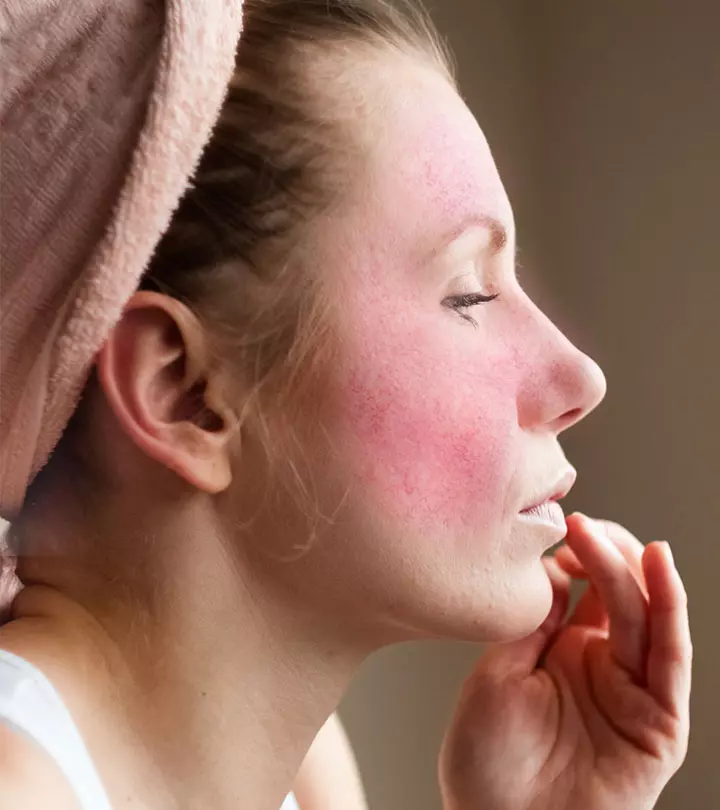
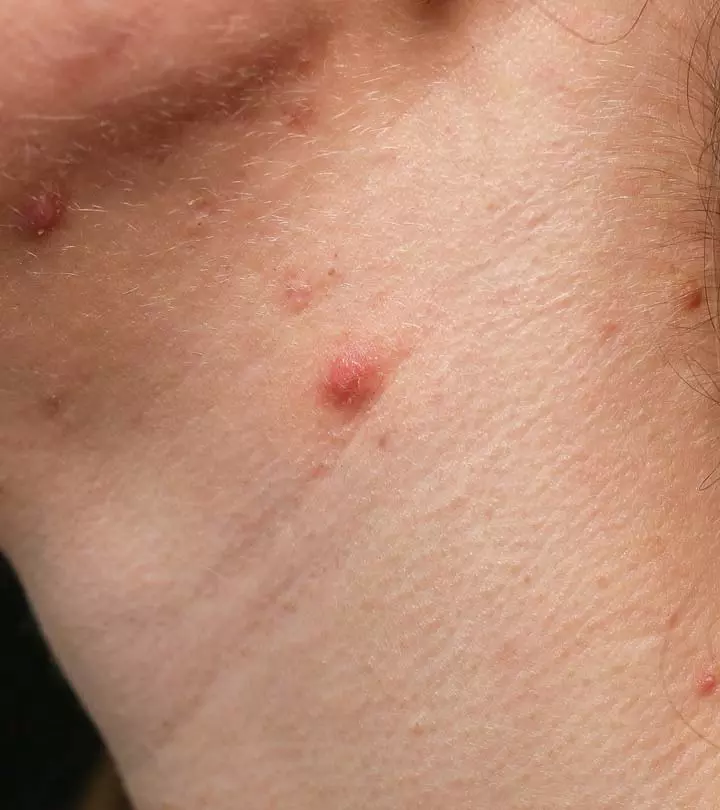
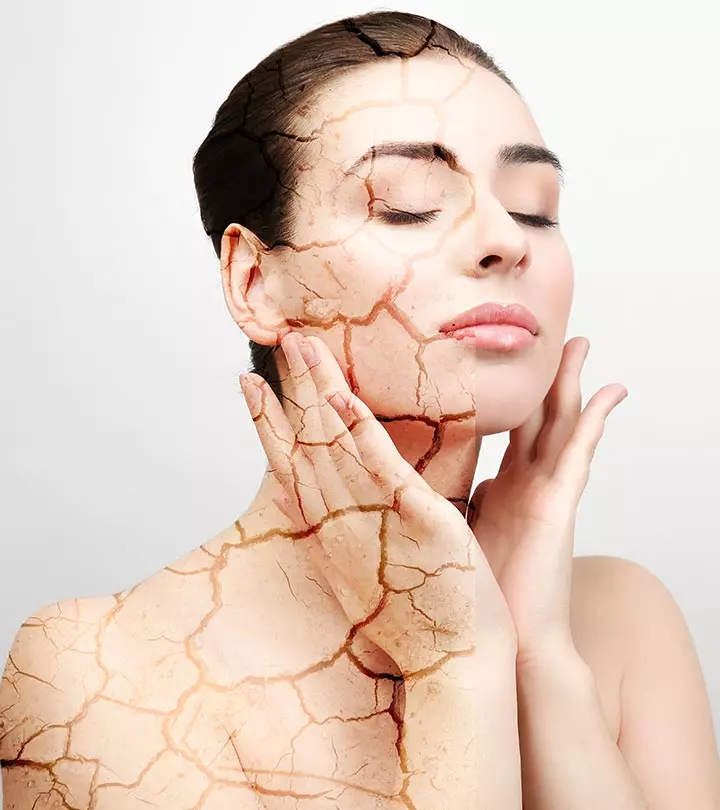
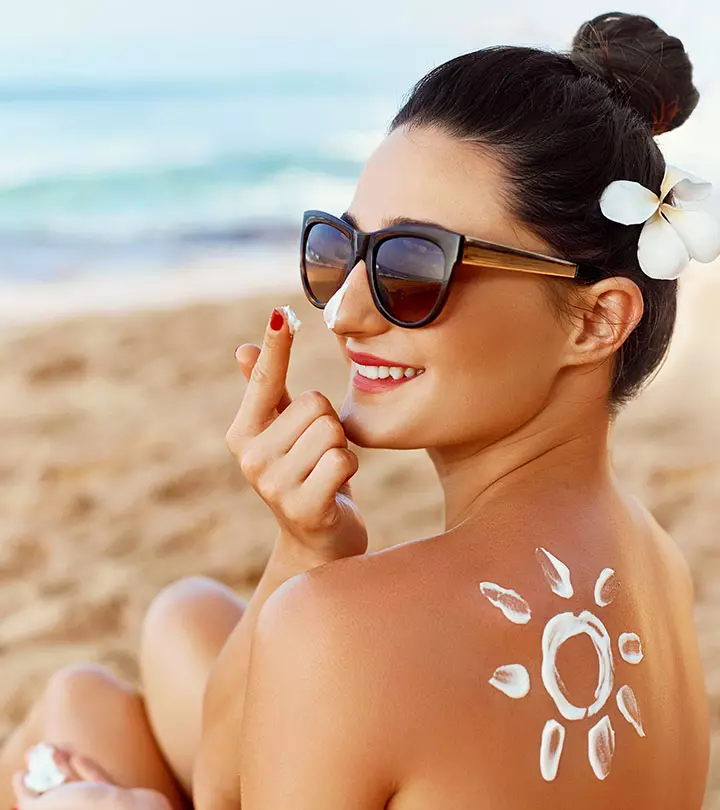
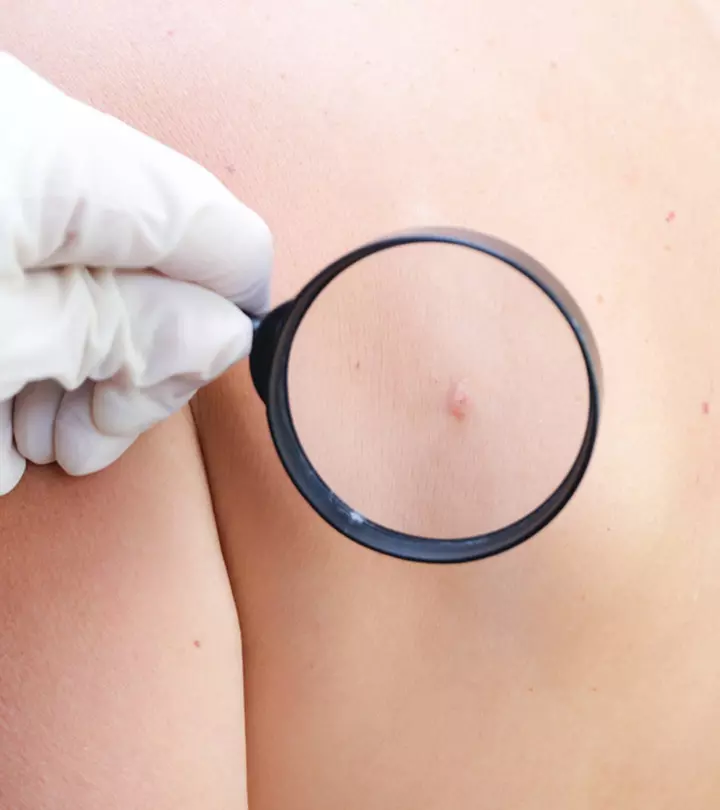
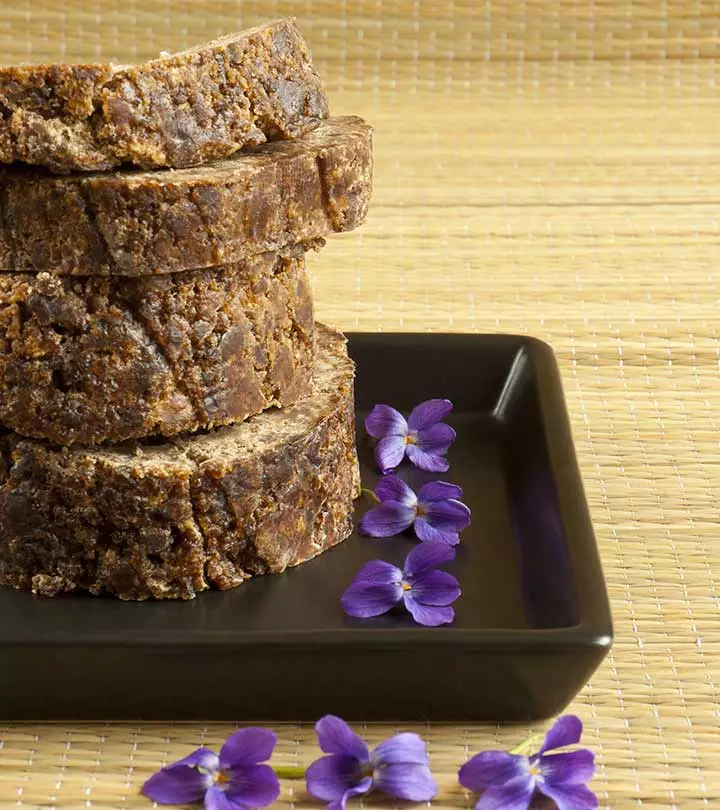
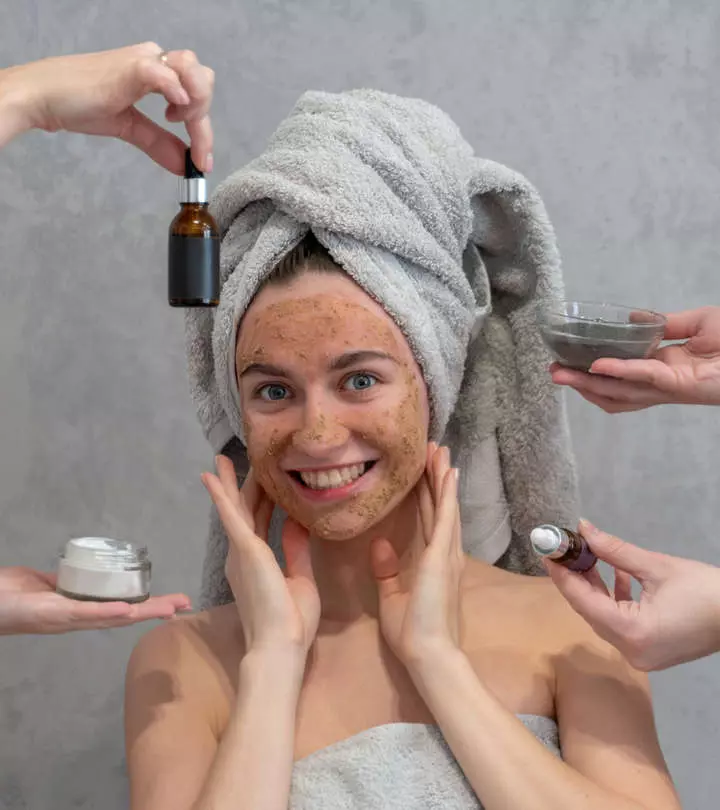
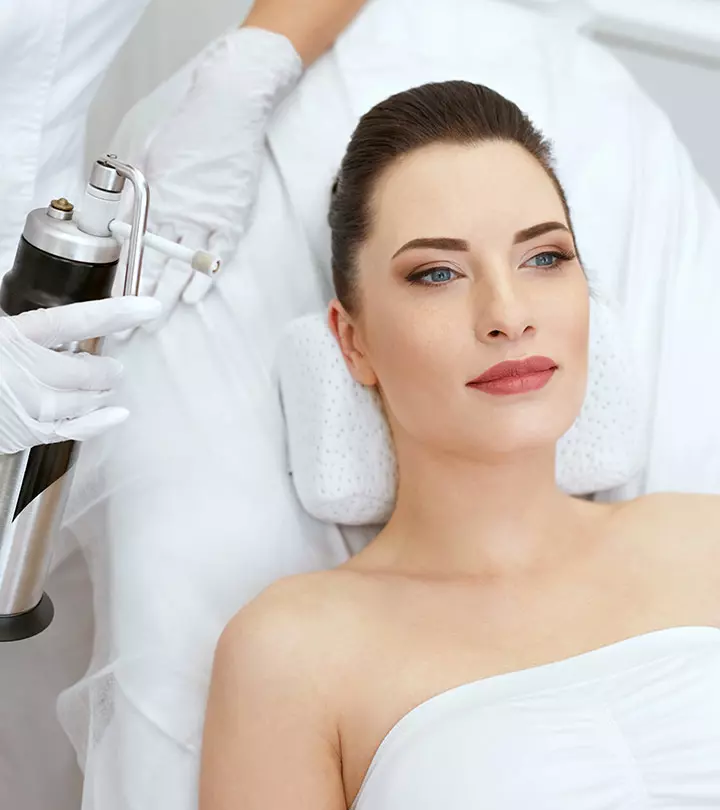
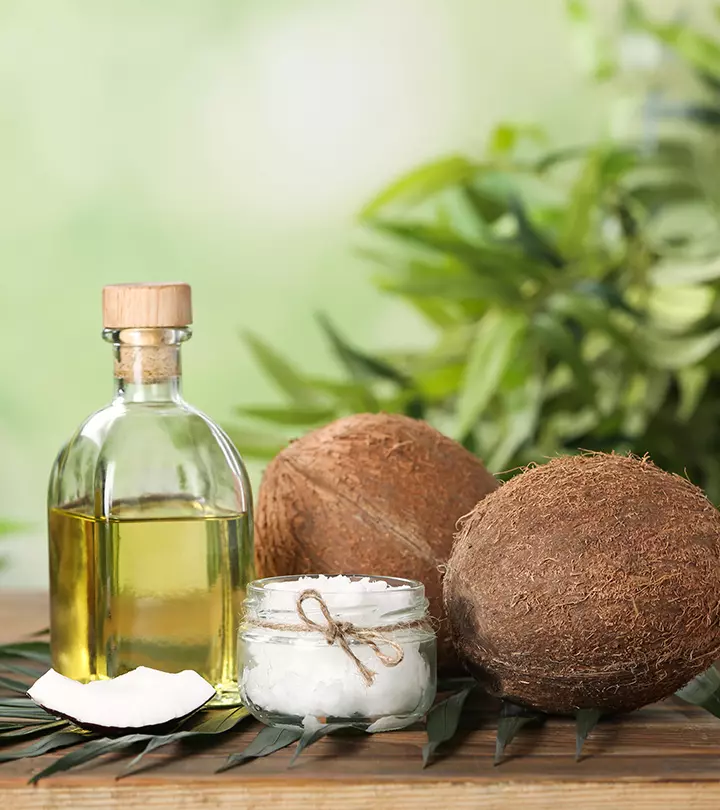
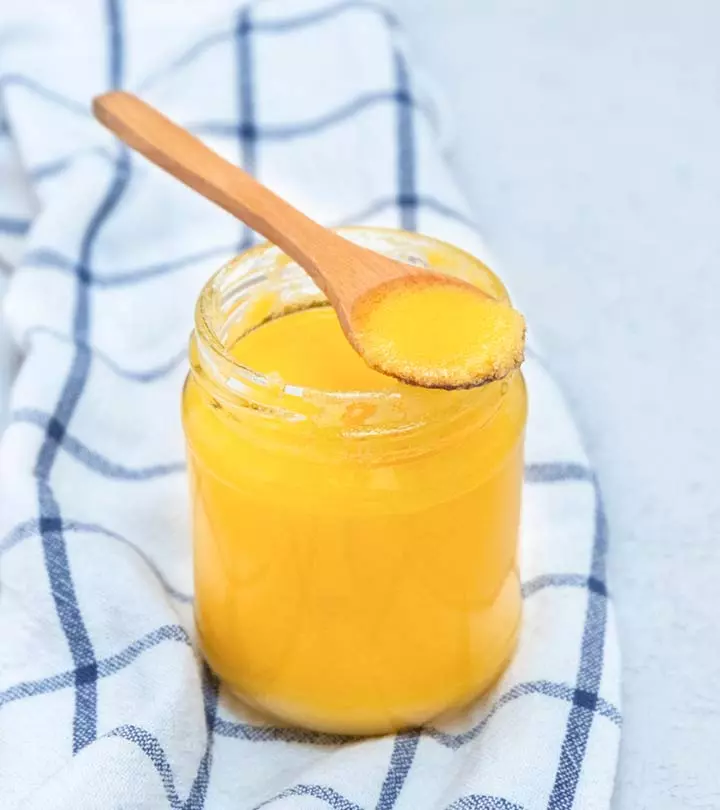
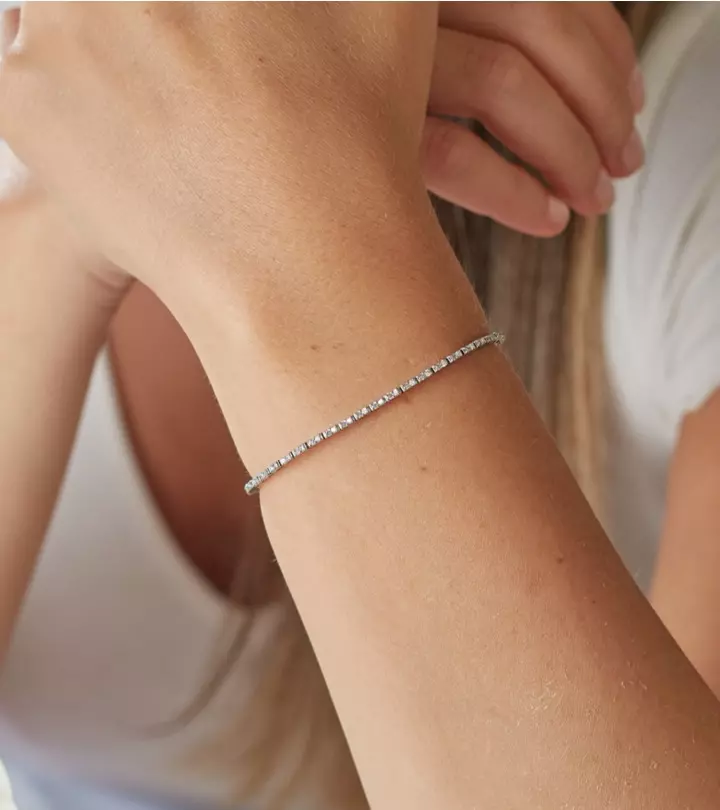
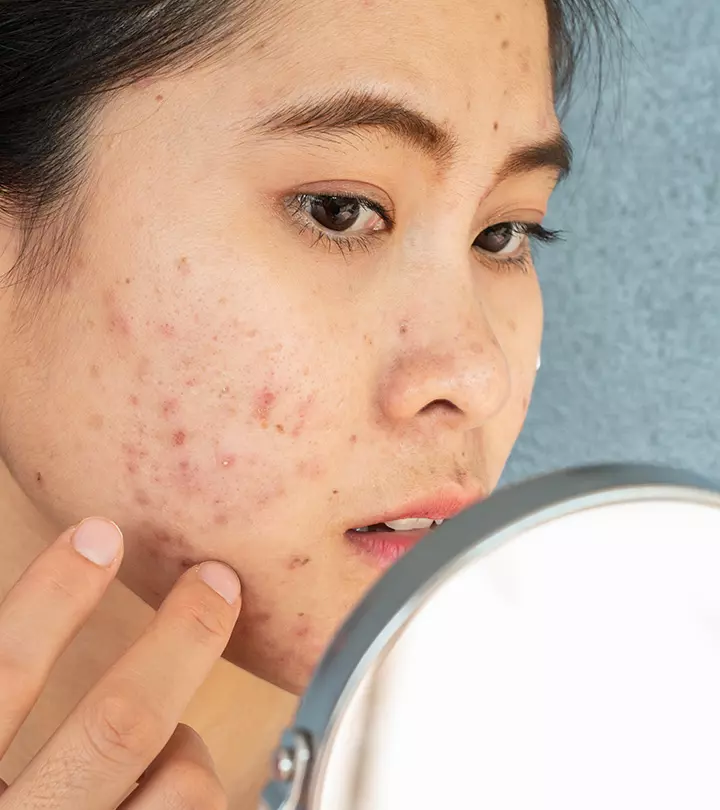
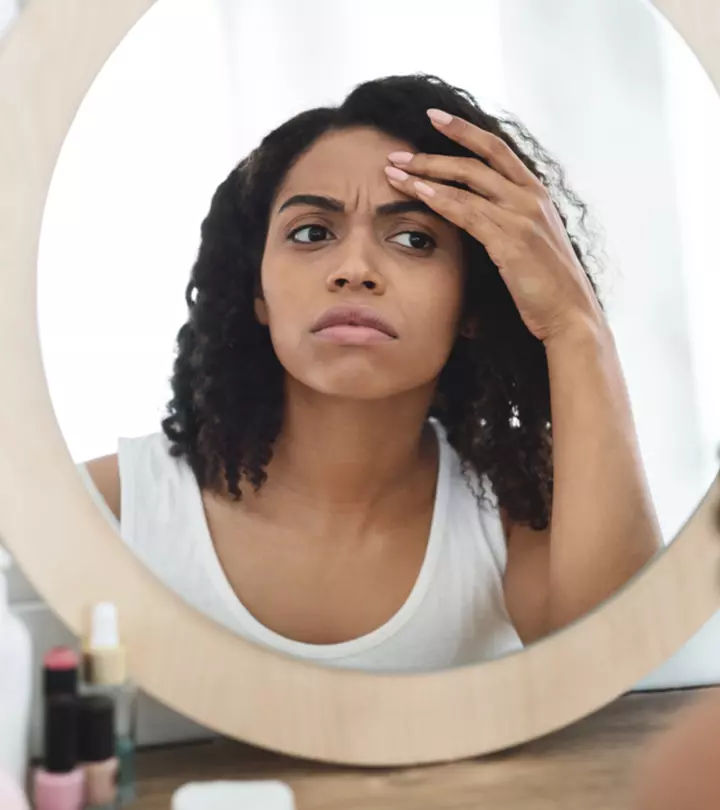
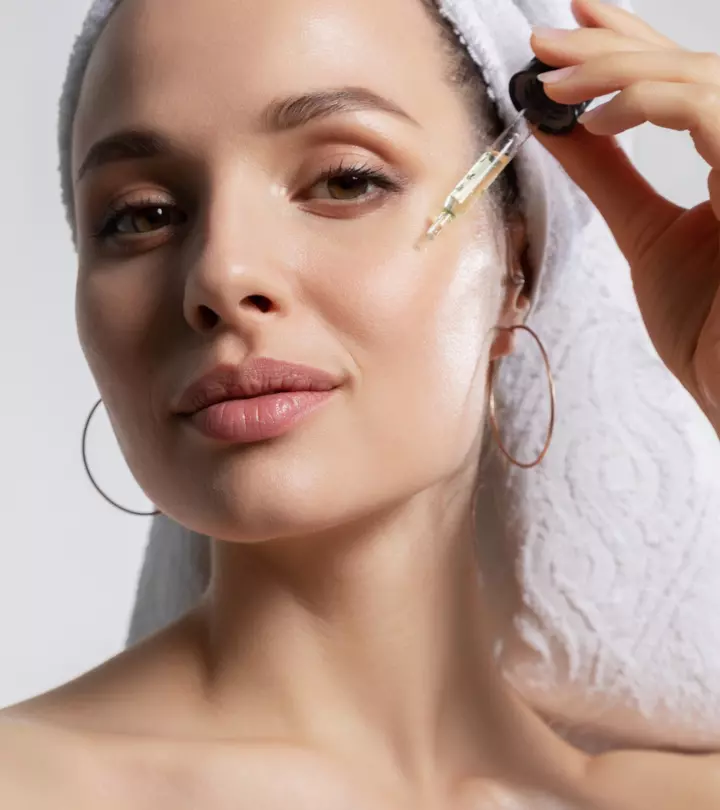
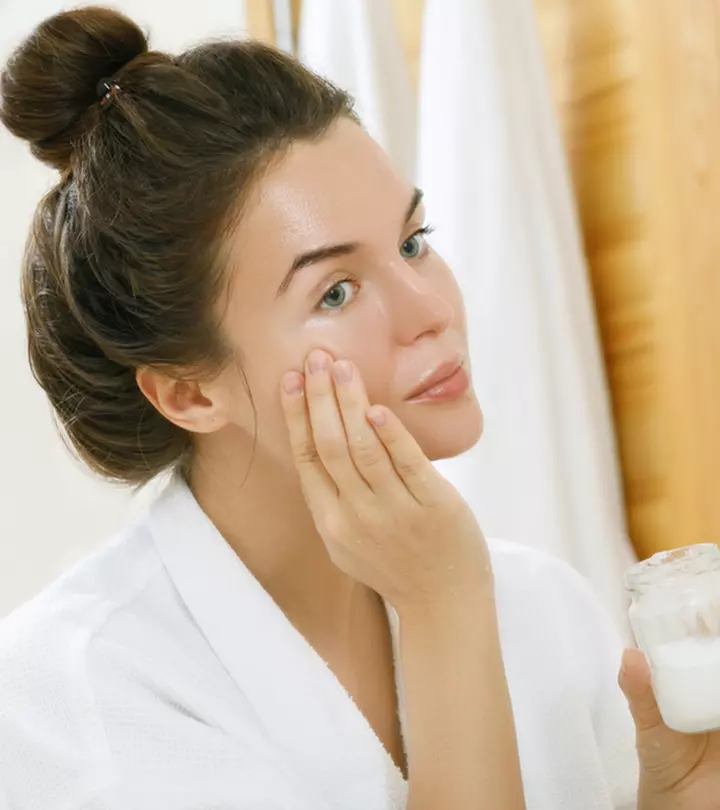
Community Experiences
Join the conversation and become a part of our empowering community! Share your stories, experiences, and insights to connect with other beauty, lifestyle, and health enthusiasts.